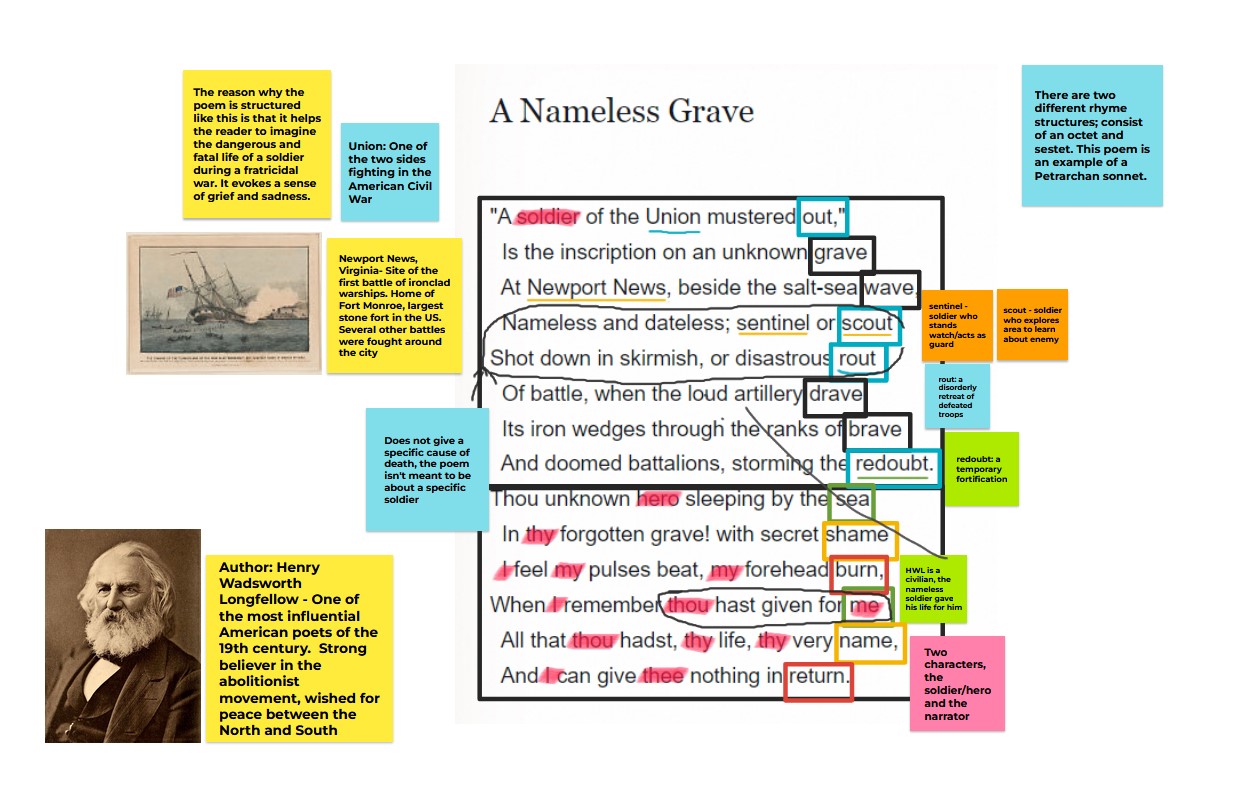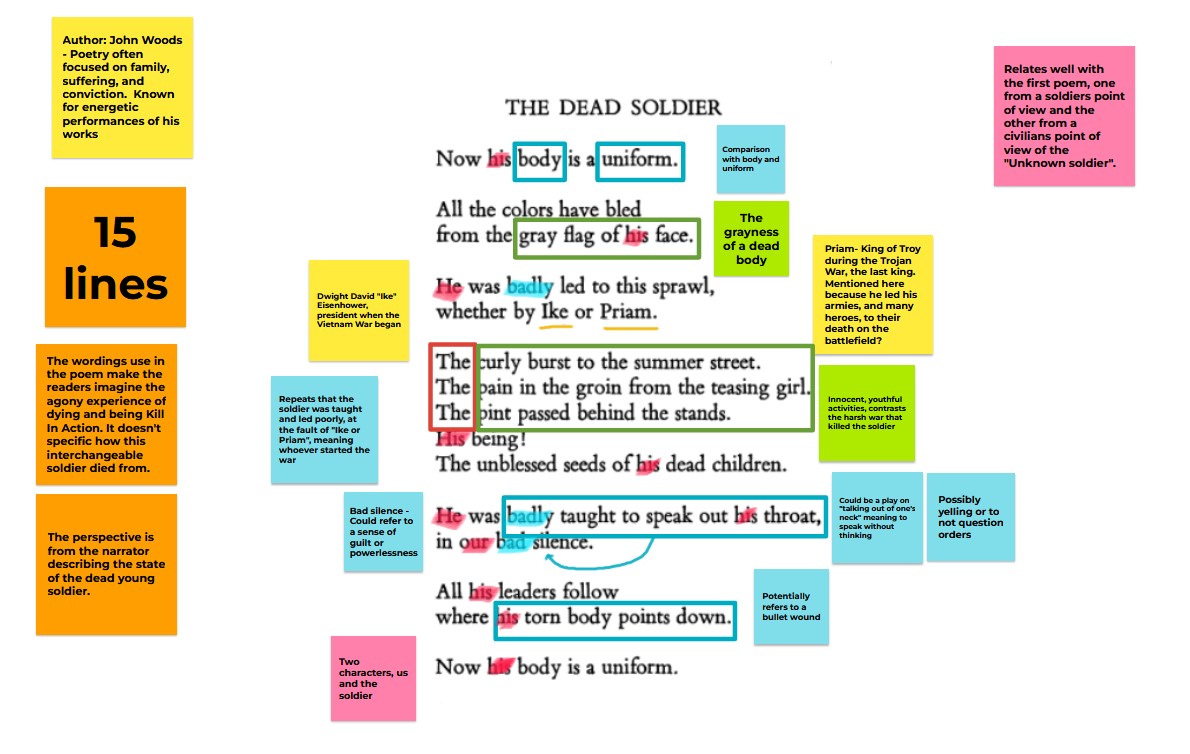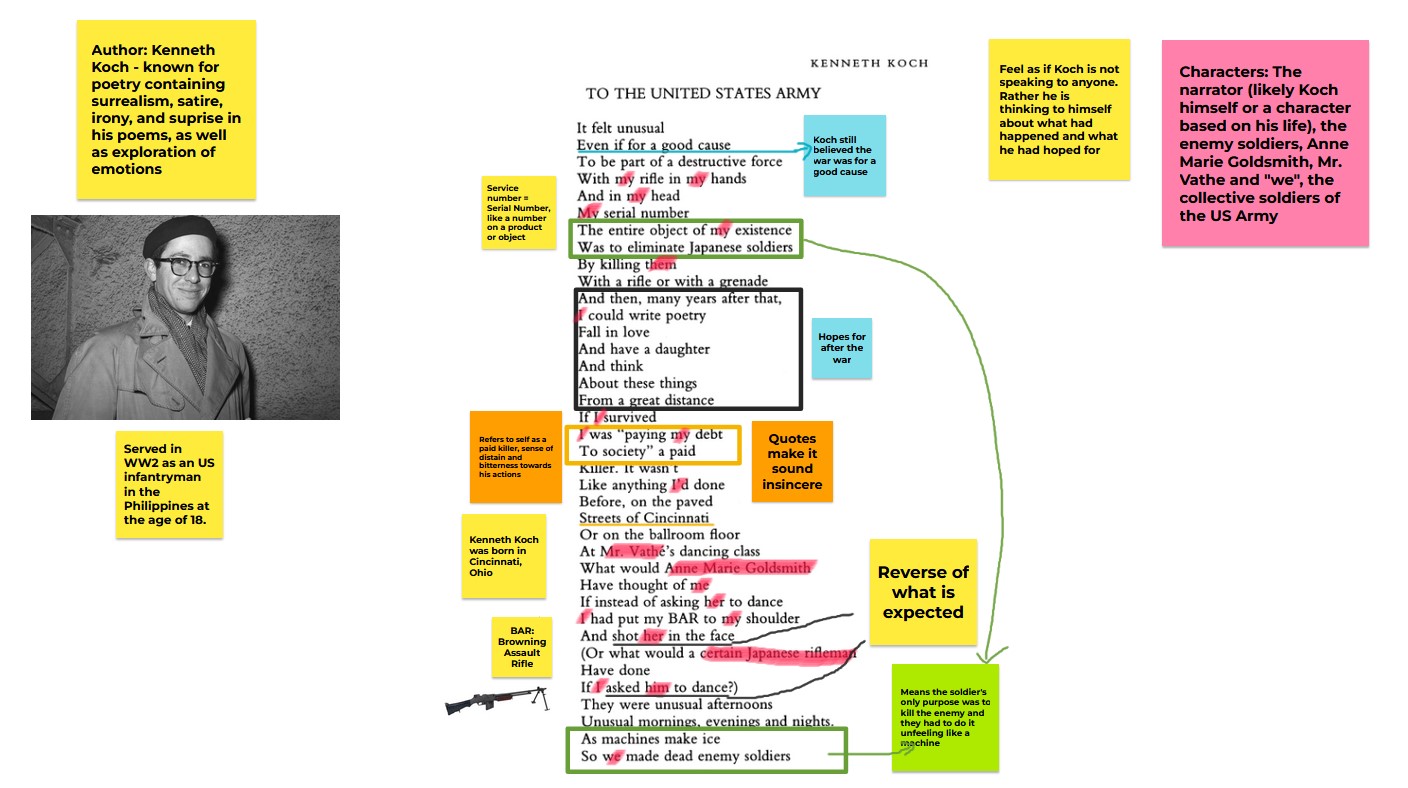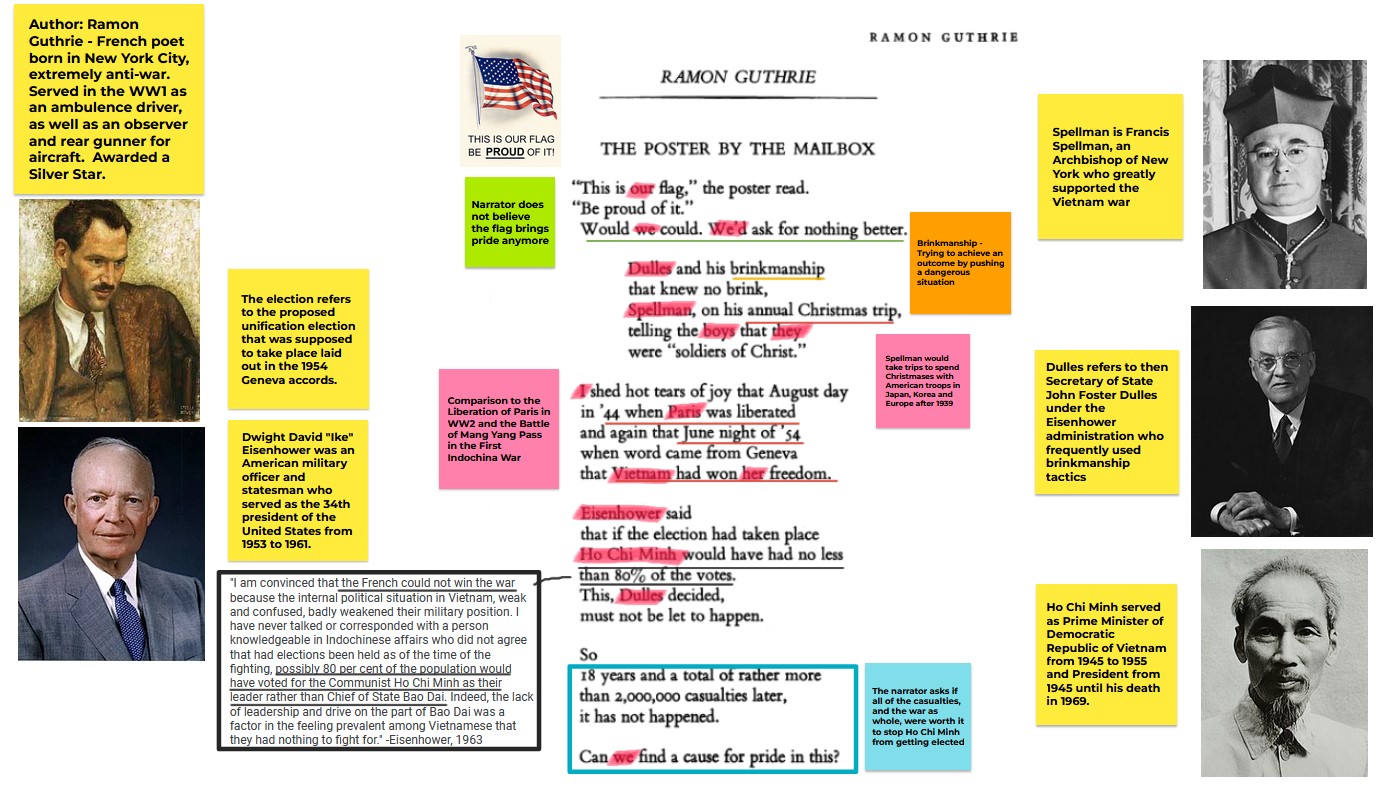Brian Mak, James Stokes, Bryan Taber, Zachery Tatro
Group Six: War
Central Question: What are civilians and soldiers’ thoughts and feelings about war? Why did they choose to express them through poetry?
A Nameless Grave by Henry Wadsworth
This is the first poem of this collection. The reason why we picked this poem is because it clearly connected with the central questions, expressing his grief over the many nameless soldiers that will be mainly forgotten except for a few people. This poem comes from the civilian point of view during the American Civil War, expressing his feelings through poetry. They immortalized the memory of the soldiers who died by various gruesome means, such as being blown up by artillery or being shot during a rout, only to be forgotten by the general public as statistics on a paper. This sadness and guilt expressed in the poem was caused by the death of the poet’s son who died as a soldier during the war.

The Dead Soldier by John Woods
Written by a soldier, “The Dead Soldier” details the viewing of a fellow soldier who has fallen and now lays sprawled on the ground. Like many war poets, Woods speaks of peaceful times to evoke nostalgia and a sense of what could have been. He touches on the dream of coming home from war and settling down to have a family, a dream which was cut down by gunfire. Woods uses the medium of poetry as it gives him specific control over how his words are read, and allows him the ability to place a strong emphasis on the message he is trying to convey. The poem both begins and ends with the line, "Now his body is a uniform", spearheading the underlying message of reducing humans to nothing more than an object left behind.

To The United States Army by Kenneth Koch
The third poem, “To The United States Army”, is from the perspective of a soldier many years after the end of the war he fought in, in this case World War II. He conveys how unusual it feels looking back on his experience, referencing how he and his fellow soldiers felt like cogs in a machine used solely for killing and were celebrated for it. Koch says he still feels it was for a good cause, but is still haunted by the time there. He likely chose poetry to express his emotions because of how complex his emotions were upon reflection and poetry allows for the readers to dive further into the complicated feelings than other forms of writing as thoughts about war are divisive.

The Poster By The Mailbox by Ramon Guthrie
This is the final poem in this collection of four, written about the feelings of the author and the affects the war has on everyone. It talks about the leaders of the world and how they sacrificed so many and, like the other poems, wonders “was it worth it?” The war affected everyone differently but both the soldiers and civilians seem to come to the same conclusion. Writing in this format leaves the reader the ability to think for themselves, to come to their own conclusions. It gives them a sense of interactivity by allowing them to think about the specific words rather than the entire series of words combined. Poetry allows one to express their own emotions through individual words while other sources of writing depend on the overall message.
